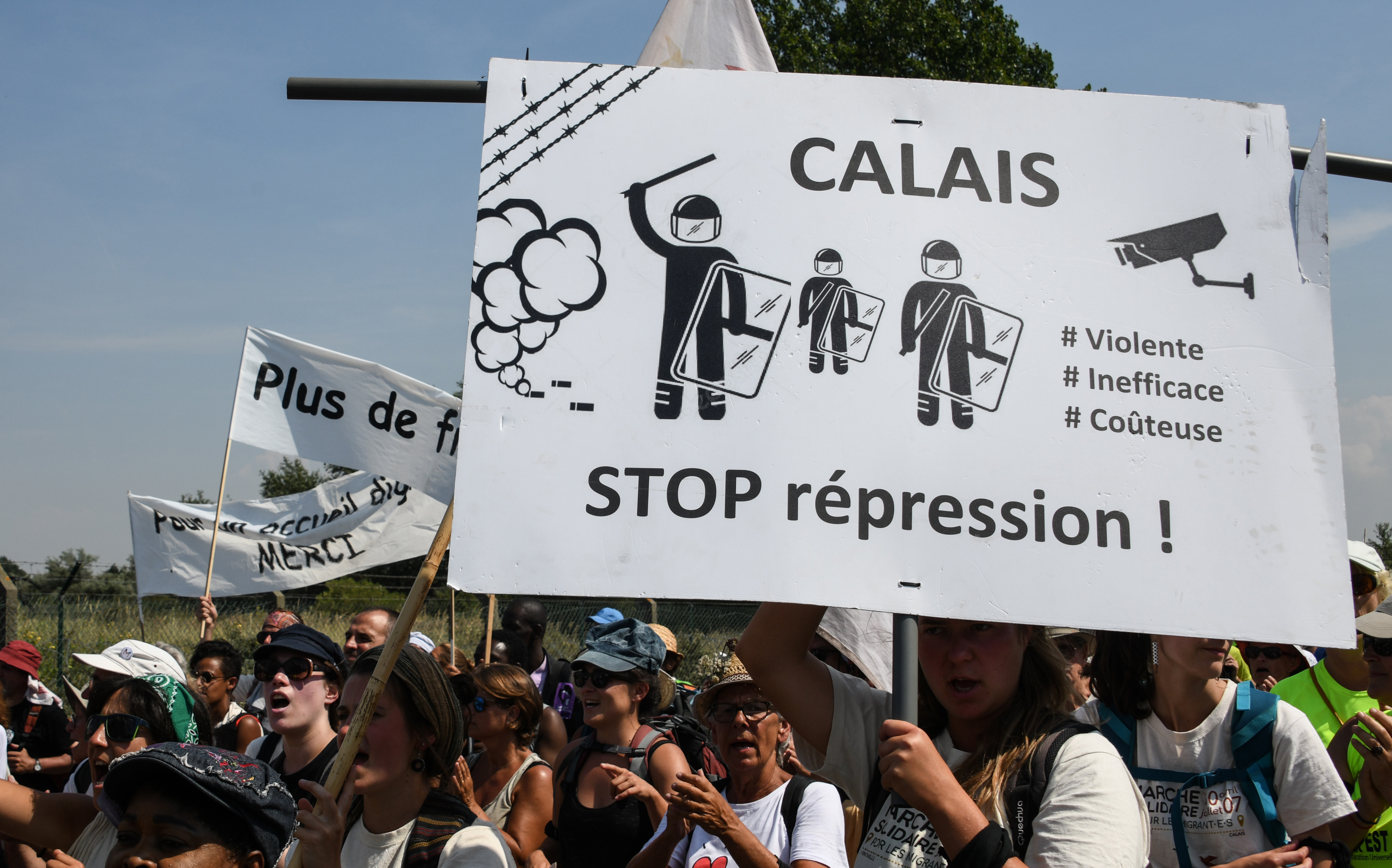No need to mistreat migrants for border control: IFRC
Photo: () | ©AFP
New York (AFP) – Migrants face increasing barriers to accessing basic services and aid, the world’s largest humanitarian network warned Tuesday, urging governments to ease those restrictions as Europe and America battle migration crises.
“There is no need to mistreat people to have proper border control,” said Francesco Rocca, president of the International Federation of Red Cross and Red Crescent Societies (IFRC) in New York.
“Preventing access to adequate food, basic health care, and legal advice about their rights is completely unacceptable. Everyone has the right to be treated with dignity and respect,” he added.
An IFRC report, released Tuesday, said migrants around the world face increasing barriers to essential services such as health care, shelter, food and legal help, which are critical to their survival and basic dignity.
Fear of harassment, arrest or deportation are factors that prevent them from accessing desperately needed support, as well as costs, linguistic barriers, and lack of knowledge about their rights.
But preventive health services can make economic sense, the report said, citing studies in Germany and Greece that found that giving migrants prenatal care can generate savings of up to 48 percent compared to emergency medical costs.
In northern France, nearly two thirds of refugees and migrants treated by one charity had health conditions related specifically to their poor and cramped living conditions, the report also said.
IFRC said some governments were enacting laws that effectively criminalize humanitarian assistance. The report did not list the countries doing so.
“This criminalization of compassion is extremely worrying, and could undermine more than a century of humanitarian standards and norms,” said Rocca.
“The idea that the prospect of basic assistance or search and rescue somehow acts as a pull factor for migration is simply not true. People decide to move for reasons that are much more profound than this.”
IFRC wants domestic laws, policies and practices to comply with international law, and for migrants to be assisted and protected.
It wants to ensure that charities can provide services such as first aid and shelter to migrants irrespective of status and without fear of arrest.
It wants to end rules that require health care providers and aid agencies to report people to the authorities, and for governments to address factors that prevent migrants from accessing essential health services.
Disclaimer: This story has not been edited by Siliconeer and is published from a syndicated feed. Siliconeer does not assume any liability for the above story. Validity of the above story is for 7 Days from original date of publishing. Content copyright AFP.


